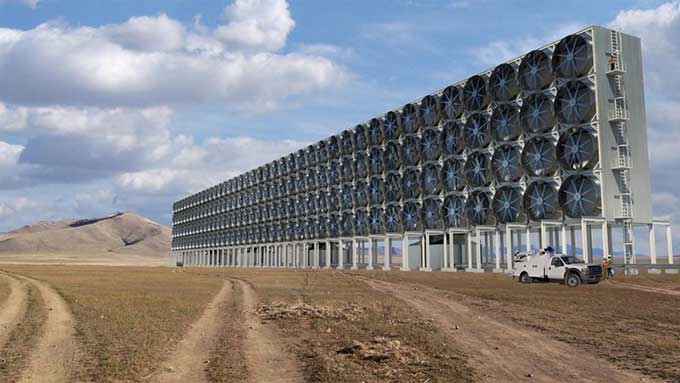It's becoming much cheaper to suck carbon dioxide from the air

In 2011 the American Physical Society estimated the cost of pulling a tonne of CO2 from the atmosphere to be $600. A new study, based on the analysis of a pilot CO2-extraction plant that's been in operation since 2015, says the price has dropped to between US$94 and $232 a tonne, which "suggests that the geoengineering technology is inching closer to commercial viability," reports Nature.
"It's great to see human ingenuity marshalling around a problem that at first pass seemed to be intractable," says Stephen Pacala, co-director of the carbon-mitigation initiative at Princeton University in New Jersey. Pacala also credits the Carbon Engineering team for publishing its results. "They have a proprietary interest in the technology, and nonetheless, they put out a readable and reviewable paper for sceptics to look at," he says.
Carbon Engineering's design blows air through towers that contain a solution of potassium hydroxide, which reacts with CO2 to form potassium carbonate. The result, after further processing, is a calcium carbonate pellet that can be heated to release the CO2. That CO2 could then be pressurized, put into a pipeline and disposed of underground, but the company is planning instead to use the gas to make synthetic, low-carbon fuels. Keith says that the company can produce these at a cost of about $1 per litre. When Carbon Engineering configured the air-capture plant for this purpose, they were able to bring costs down to as low as $94 per tonne of CO2.
Image: Artist's rendering of Carbon Engineering's design for system that pulls carbon dioxide from the atmosphere. Credit: Carbon Engineering